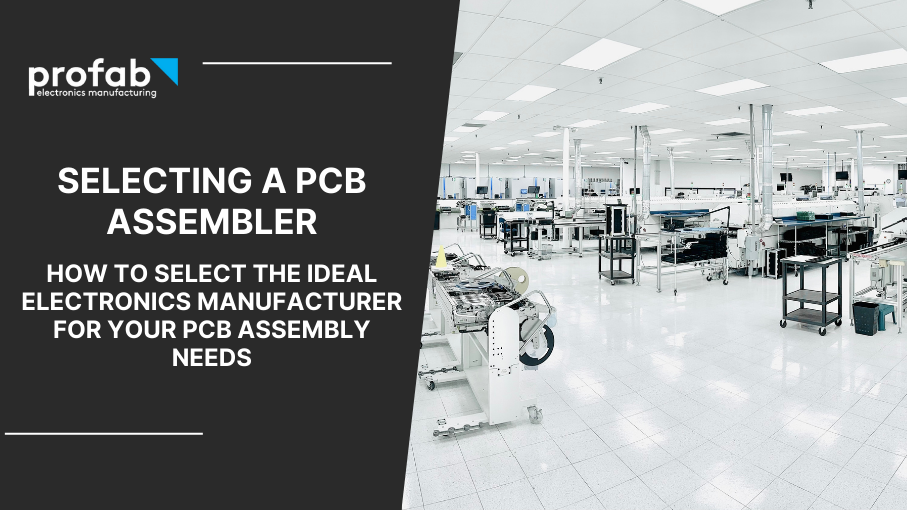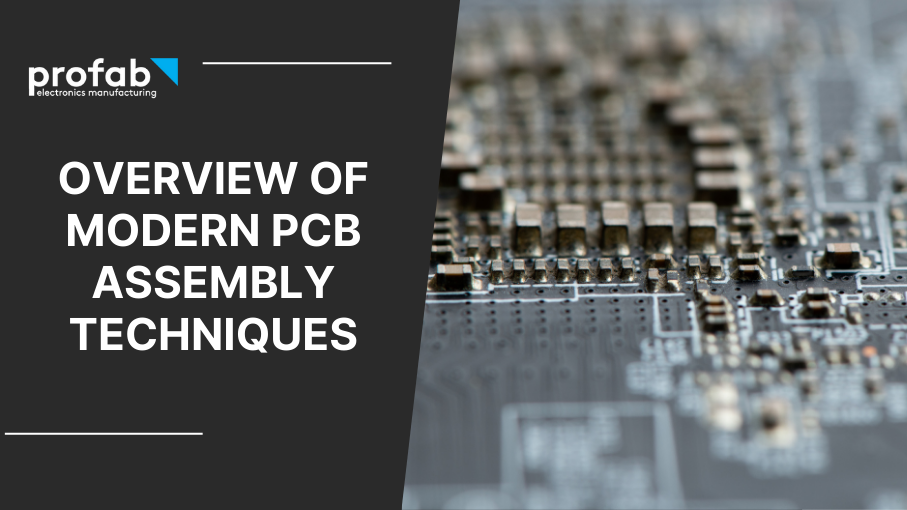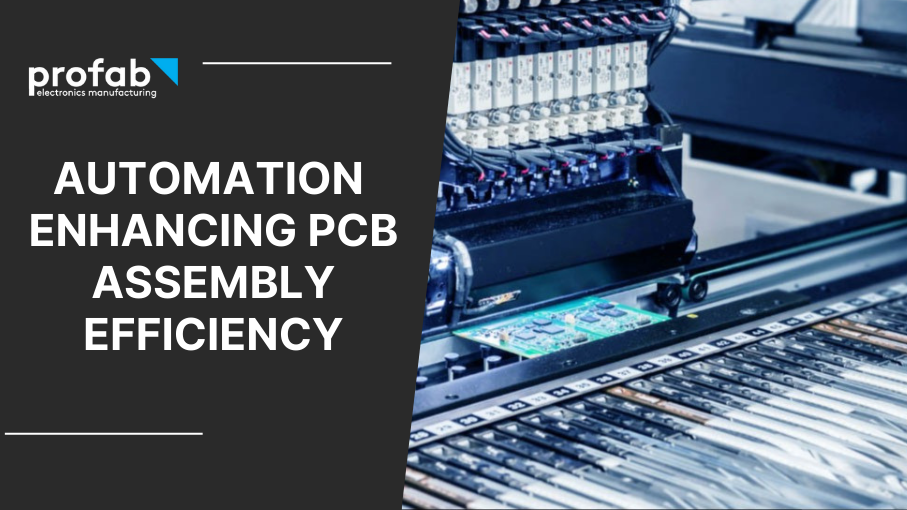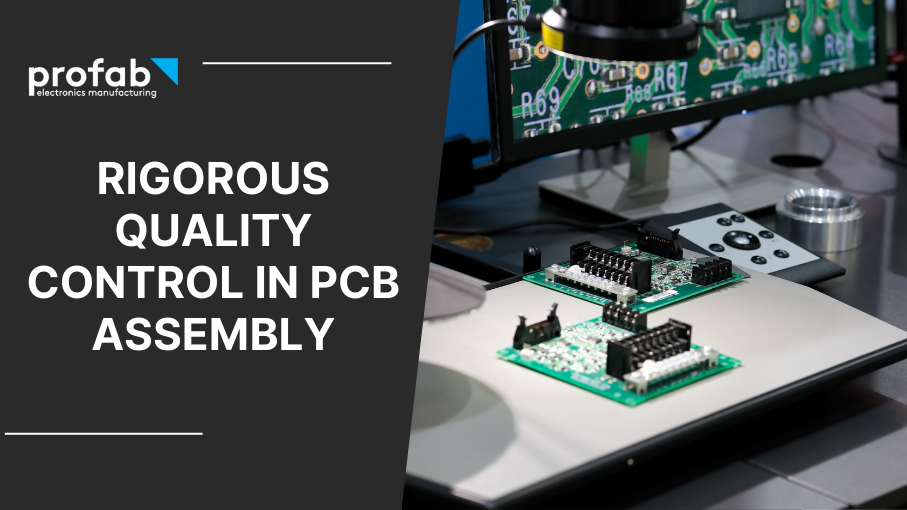
Selecting A PCB Assembler To Meet Your Needs
Selecting the right electronics manufacturing company that specializes in PCB assembly
Printed circuit boards (PCBs) are an integral part of almost every modern electronic device. The quality, performance, and reliability of these boards depend heavily on the manufacturing process. Selecting the right electronics manufacturing company, one that specializes in PCB assembly with the right equipment and processes, is therefore essential. This guide offers an in-depth examination of the various factors to consider when making this critical choice.
Scalability in Electronics Manufacturing
Adapting to Business Growth
High-Speed Pick-and-Place Machines: Essential for large-scale manufacturing to meet high demand efficiently.
Prototype Assembly Machines: Required for smaller batches, ensuring quality control during the prototyping phase.
Adaptation Strategy: A clear strategy to move from prototype to mass production, using specialized assembly lines.
Flexible Production Capacity
Versatile Screen Printers: Allow for quick changes in print parameters.
Flexible Mounters: Adapt to different board designs and component types.
Inventory Management: A robust system to handle various component types and quantities.
Emerging Technologies
Additive Manufacturing: For rapid prototyping and customization
Investment in Research and Development: A clear sign of commitment to staying ahead of technology trends.
Quality Processes in PCB Assembly
Automated Processes
Automated Optical Inspection (AOI) Systems: Essential for checking the accuracy of component placement.
Robotic Soldering: Ensures consistent and precise soldering of components.
Automated Testing Equipment (ATE): For end-to-end testing and quality assurance.
Comprehensive Inspections
3D X-ray Inspection: Enables a detailed view of solder joints and internal connections.
In-Circuit Testing (ICT): Provides functional verification of the assembled PCBs.
Failure Analysis Labs: For investigating and rectifying any potential design or process flaws.
Robotic Material Management
Just-In-Time (JIT) Delivery Systems: For efficient workflow and reduced storage costs.
Automated Tracking Systems: To prevent delays due to missing or misplaced components.
Robotic Inventory Systems: Ensure accurate handling of components.
Customer Service in Electronics Manufacturing
Transparent Communication
Regular Updates: On milestones like component procurement, assembly, and testing.
Dedicated Account Management: For personalized and timely responses to inquiries.
Collaborative Platforms: Tools and software that allow real-time collaboration and tracking.
Commitment to Success
Design for Manufacturing (DFM) Analysis: Collaborative efforts to ensure manufacturability and cost-effectiveness.
Partnership Approach: A commitment to shared goals and open communication.
Prototyping Support: Working closely during the prototype phase for iterative improvements.
After-Sale Support
Warranty Services: Clear and reliable warranty terms.
Technical Troubleshooting: Support in diagnosing and rectifying any post-production issues.
Ongoing Relationship Management: Regular check-ins and support for future product iterations.
Technical Expertise in PCB Assembly
Skilled Engineers and Technicians
Expertise in Various Assembly Processes: Knowledge in wave soldering, reflow soldering, and through-hole assembly.
Certifications and Qualifications: Certifications like IPC-A-610 for assembly quality standards.
Cross-Functional Teams: Collaboration between design, production, and quality control teams.
Cutting-Edge Technology
Selective Soldering Machines: For precise soldering in high-density PCBs.
Automated Dispensing Systems: Ensuring accurate application of adhesives and coatings.
Investment in Modern Machinery: Continuous upgrades to maintain technological leadership.
Continuous Learning and Development
Regular Training: On SMT techniques, new machinery, and industry best practices.
Attendance at Industry Conferences: Staying updated on industry trends and innovations.
In-House Research and Development (R&D) Team: For continuous innovation and improvement.
Environmental and Ethical Compliance in Electronics Manufacturing
Sustainable Practices
Lead-Free Soldering: Using environmentally friendly materials.
Energy-Efficient Reflow Ovens: Reducing energy consumption.
Recycling and Waste Management: Responsible disposal of waste materials.
Regulatory Compliance
Adherence to RoHS, WEEE, and other Standards: Ensuring all products meet legal requirements.
Regular Audits and Inspections: Demonstrating continuous compliance with regulations.
Ethical Sourcing
Conflict-Free Minerals: Ensuring responsible sourcing.
Supplier Audits: Regular checks to ensure adherence to ethical standards.
Transparency in Sourcing Practices: Clear documentation of sourcing policies and procedures.
Selecting the ideal electronics manufacturing partner for PCB assembly is a complex decision that requires a multifaceted evaluation. By examining aspects such as scalability, quality processes, customer service, technical expertise, and environmental and ethical compliance, you can identify a partner that aligns with your needs and values.
The particular types of equipment, processes, certifications, and practices detailed in this guide provide a comprehensive framework for evaluating potential manufacturers. Such careful consideration will enable a partnership that not only delivers top-quality PCBs but also supports technological innovation, ethical responsibility, and long-term growth.
About Profab Electronics
Profoundly embedded in the electronics manufacturing sector, Profab Electronics has been steadfast in its commitment to deliver excellence for over three decades. Our unparalleled experience, fortified by our stringent quality standards, positions us as a trusted partner in the realm of Electronics Manufacturing Services (EMS).
We're an ISO 9001 and AS9100 certified company, and our adherence to these globally recognized standards attests to our unyielding quest for quality. Our team comprises experts who hold formative training on the latest IPC standards, ensuring that we consistently produce electronic products of the highest caliber.
Our proficiency lies in PCB assembly, offering a spectrum of services ranging from Surface Mount (SMT) to Through-Hole Assembly. From the initial stages of prototyping to high volume pcb assembly, we offer comprehensive solutions to meet client requirements.
At Profab Electronics, we synergize our expertise and experience to deliver high-quality electronic products. Our unwavering commitment to quality, innovation, and customer satisfaction has established Profab Electronics as a leader in the electronics manufacturing industry. Trust us to bring your technological visions to life.
Latest Posts

Learn about our state-of-the-art Surface Mount and Through-Hole Technologies, sophisticated soldering processes, and rigorous quality control methods that define today's industry standards.

Learn about our advanced component placement, solder paste printing, and automated inspection systems that revolutionize the assembly process.

Discover how our adherence to ISO 9001 and AS 9100 standards, IPC solder training, and meticulous inspection processes ensure the precision and accuracy of every PCB we produce, underpinning our unwavering commitment to quality.